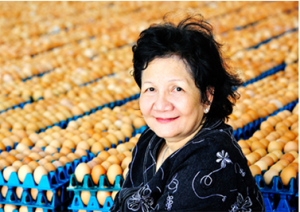|
Shalabh Dixit: The link between rice genes and rice farmers
Thursday, 2016/10/06 | 08:08:46
|
|
IRRI, Alaric Francis Santiaguel | Sep 26, 2016
Figure: Through his research, Dr. Dixit (center) links the microscopic world of rice genes with the farmers that grow one of the world’s critically important staple crops. (Photos: Isagani Serrano)
A QTL is a segment of an organism’s DNA that contains a gene or genes linked to a particular trait. In the rice plant, for example, it can control height, built-in resistance to a particular disease, or the ability to produce more grain yield. It is within this complex inner universe of genes and DNA strands where Shalabh Dixit works in his role as a scientist at the International Rice Research Institute’s (IRRI) Plant Breeding Division. He searches for untapped genetic materials to develop new rice varieties that are tougher and more productive.
Dr. Dixit, 32, grew up in Chhattisgarh; also known as the “rice bowl” of India. His home state accounts for more than 9% of India’s total rice area and has more than 20,000 recorded rice varieties. Although he doesn’t come from a farming family, his father is an orthopedic surgeon and his mother is a retired school teacher, Dr. Dixit has rice science flowing in his veins. His passion for rice genetics is rooted in his childhood years.
“A large part of Chhattisgarh, more than 80%, is rainfed where drought is one of the major problems affecting farmers,” he points out. “Growing up there, I have seen the impact of environmental stresses. When I started doing rice breeding and drought research, I was able to immediately connect with that time back home when I saw all the problems and crop losses due to drought.”
Agriculture was not his first career choice but you wouldn’t know it based on his commitment to his chosen profession. Once he got into it, there was no stopping him. In this recent interview, Dr. Dixit talks about his work that links the microscopic world of rice genes with the farmers that grow one of the world’s critically important staple crops.
See more: http://ricetoday.irri.org/shalabh-dixit-the-link-between-rice-genes-and-rice-farmers/ |
|
|
|
[ Other News ]___________________________________________________
|


 Curently online :
Curently online :
 Total visitors :
Total visitors :
(10).png)



















